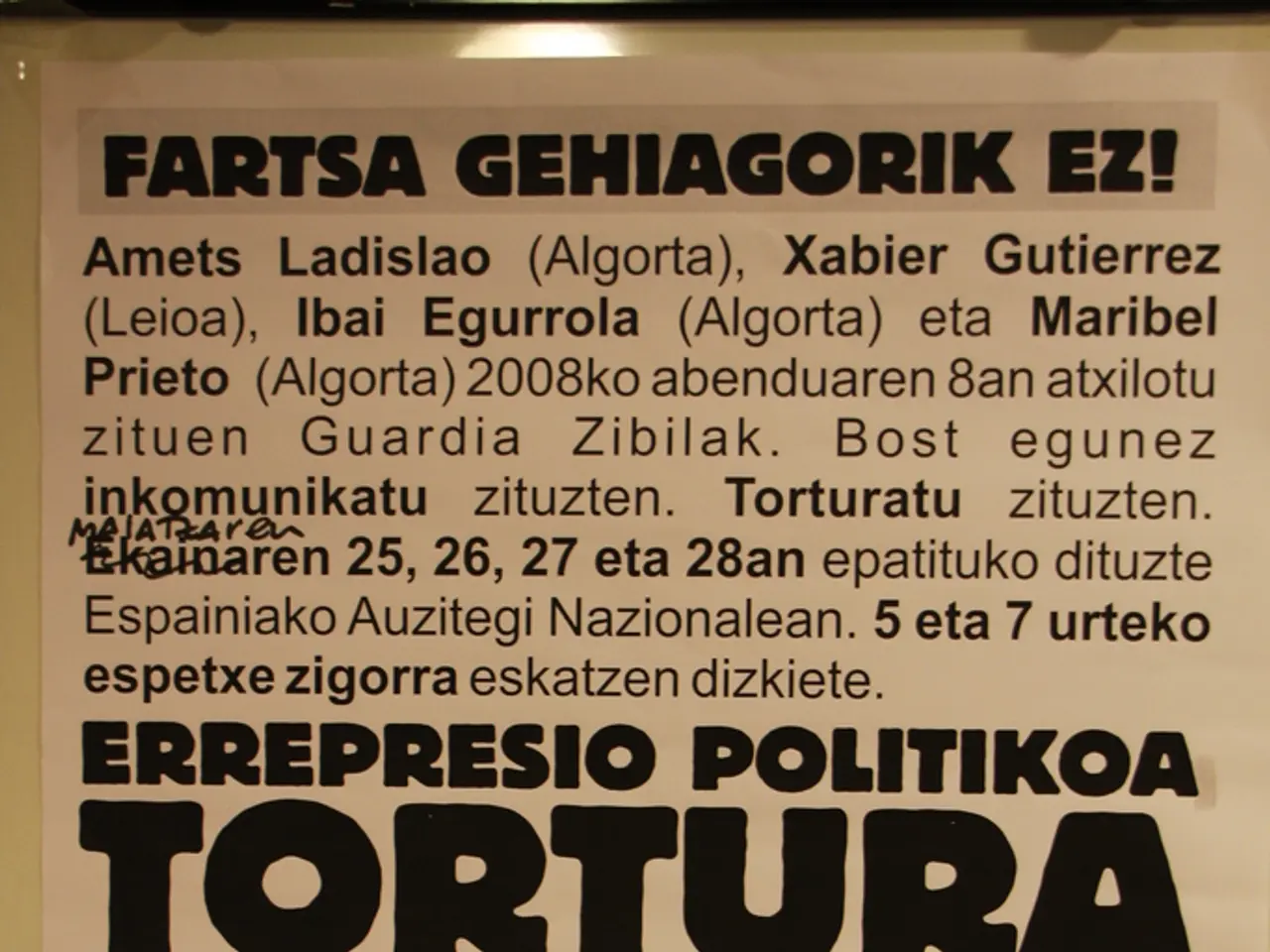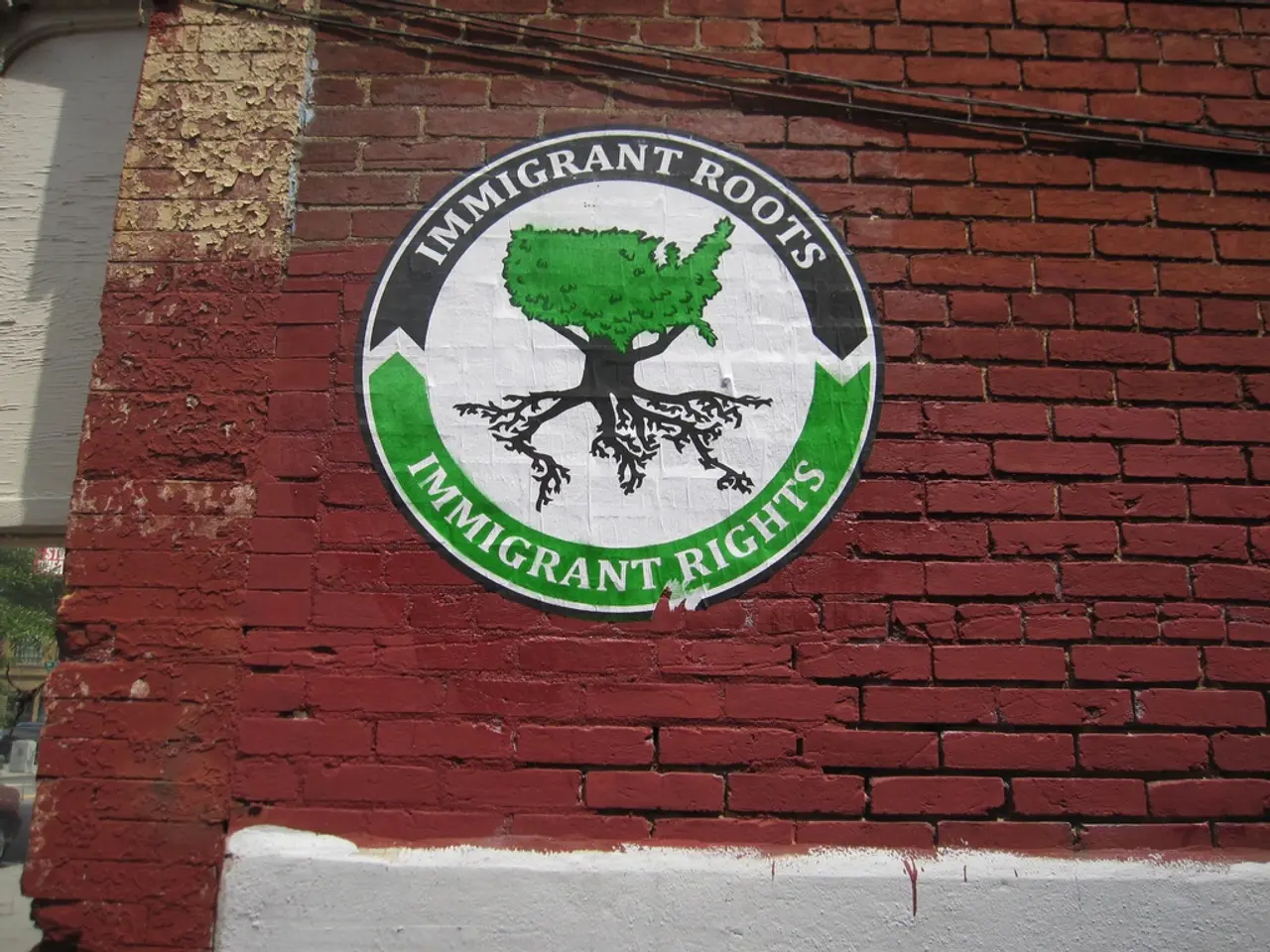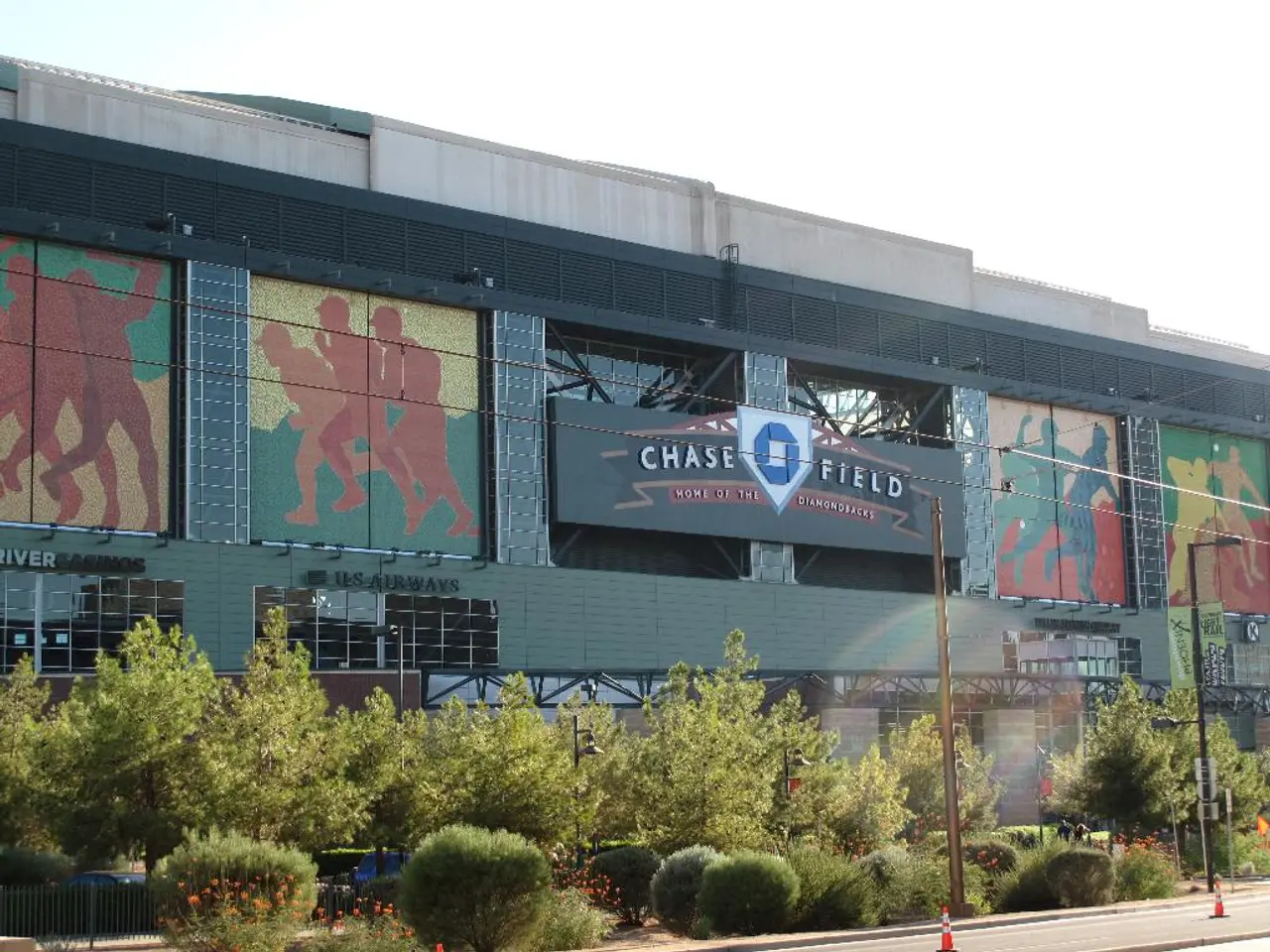Navigating the Path to Internal Strife: Spanish Comparative Study
===============================================================================
The Spanish Civil War, which lasted from 1936 to 1939, was a tumultuous period in Spanish history marked by political unrest, violence, and division. This conflict began after a series of significant events that shaped the political landscape of Spain in the early 20th century.
In 1923, Gen. Miguel Primo de Rivera took power in a military coup, governing under the motto "Country, Religion, Monarchy." His rule was marked by taxation of the rich to fund public works, but when the wealthy objected, he attempted to borrow money from banks. Primo de Rivera left Spain in 1930, a broken man, and King Alfonso XIII fled the country, leading to the establishment of Spain's Second Republic.
The Second Republic was a time of ideological tension and political upheaval. The famous Spanish philosopher, Jose Ortega y Gasset, became a leader of Agrupacion al Servicio de la Republica, a group of intellectuals who supported the Socialist Republicans. His 1930 work, The Revolt of the Masses, had a significant impact on the atmosphere of the Second Republic. In this book, Ortega y Gasset criticised the "triumph of hyperdemocracy," expressing concern that the rise of mass politics and popular sovereignty allowed the unqualified masses to dominate cultural and political life. This analysis resonated with many intellectuals and conservative sectors who feared the Republic's reforms and the growing influence of populist movements.
Ortega y Gasset's condemnation of mass-driven politics contributed to a broader discourse of elite skepticism about the Republic’s democratic process, framing the political conflict in terms of a revolt by the uneducated masses against the established cultural and political elites. This intellectual milieu deepened polarization in Spain, feeding into the ideological divisions that exploded into the Civil War in 1936.
The Spanish General Election of 1936 was marred by interference from leftist mobs and annulments in some areas, while seats were assigned to the left's Popular Front elsewhere. The Spanish Confederation of Autonomous Rightists (CEDA), also known as the Catholic party, became the country's largest political party.
The political tension culminated in a military insurrection led by the right wing on 18 July 1936, engulfing Spain in a bloody civil war. The left, which had a numerical advantage in the military, initially seemed poised to win, but their focus on violent actions rather than the military conflict allowed the right to gain the upper hand.
The Spanish Civil War was a devastating conflict, claiming the lives of between 500,000 and a million people out of a population of 23.8 million. Cities were ravaged by riots, trains derailed, bridges destroyed, and army outposts mutinied. Barcelona experienced large-scale bombings and the murder of nearly 100 clergymen. The violence was so extreme that historian Stanley Payne described the left's response to the insurrection as an "orgy of arrests, attacks on churches, murders en masse, and arson and pillage in general."
The right-wing coalition, led by Gen. Francisco Franco, ultimately emerged victorious, defeating a leftist coalition of anarchists, communists, and syndicalists on 1 April 1939. Franco's loyalty was not questioned by the government during the conflict, and he was initially removed from his senior position and sent to command the Canary Islands.
The murder of Calvo Sotelo, a leading right-wing politician, by the bodyguard of Socialist party leader Indalecio Prieto had a significant impact on the conservatives, making it seem more dangerous not to rebel than to rebel. The violent October 1934 insurrection, which included an abortive revolt of the Catalan government in Barcelona, revolution in fifteen of Spain's fifty provinces, the murder of nearly 100 clergymen, widespread destruction and arson, the looting of banks, with 1,500 people killed and 15,000 arrested, further exacerbated the political divide.
Ortega y Gasset's warning that politics would become the province of low-quality individuals and that the management of the country would fall into the hands of people who were "pseudo-intellectual, unqualified, unqualifiable, and, by their very mental texture, disqualified" proved prescient in the context of the Spanish Civil War. The conflict was a tragic demonstration of the dangers of political polarisation and the destructive power of mass politics.
References:
[1] Payne, Stanley G. (1987). The Spanish Civil War: The Southern Front. University of Wisconsin Press.
[2] López-Morales, Javier (2012). The Spanish Civil War: A Very Short Introduction. Oxford University Press.
- The intellectual discourse during the Spanish Second Republic, led by philosopher Jose Ortega y Gasset, expressed concerns about the "triumph of hyperdemocracy" and the dominance of unqualified masses in cultural and political life, a sentiment that resonated with conservative sectors.
- The Spanish Civil War, marked by political unrest, violence, and division, can be seen as a tragic demonstration of the dangers of political polarization and the destructive power of mass politics, a concern raised by Ortega y Gasset in his work, The Revolt of the Masses.
- The military insurrection led by the right wing in July 1936, which engulfed Spain in a bloody civil war, was fueled by a political divide exacerbated by ideological tensions, violent actions, and interference in elections.
- The history of the Spanish Civil War serves as a stark reminder of the consequences of tyranny, as General Francisco Franco, who led the right-wing coalition to victory, imposed a repressive regime known for its suppression of political dissent and human rights abuses, echoing Ortega y Gasset's warning about the management of the country falling into the hands of disqualified individuals.







